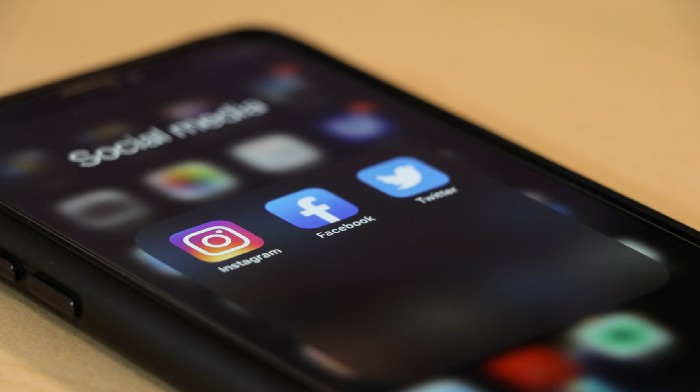
Five irreplaceable tools for growth
This way of thinking inspires innovation and creativity

You are probably reading this article because you are keen to sharpen your skills as an author or perhaps, like many people, writing a book has been a lifelong dream. Some studies across the Caribbean, U.S.A and U.K, place the percentage of people who want to write and publish a book, at some point in their lives at around 75%.
In this article I will teach you four easy steps to writing a non-fiction book that sells. While the four steps outlined here are admittedly an oversimplification of the writing process, motivation and passion associated with most best-sellers, the steps are built on practices me and other authors have successfully implemented.
Writing a book consistently tops the list of unrealised New Year’s resolutions, alongside losing weight, drinking, and smoking less. But if three months into 2021, you still have not put metaphorical pen to paper, do not worry, there is still time to make a start.
Here are the four easy steps to write a non-fiction book that sells:
Research your topic
Before you can write, you need to have something to write about. Your mission, if you choose to accept it, should be to acquire extensive knowledge and deep understanding through, and this is critical, a combination of research and experience. One of the side-effects of an author not understanding a subject area and weak writing output is a low volume of sales. There are other factors that may play a role in the final sales volume of any given book and these can be attributed to the success or lack of marketing. The recent rise of vanity publishing and other self-publishing platforms has been accompanied by a rise in authors who hastily produce non-fiction books with little to no subject value.
Some of the ways an author can gain the requisite knowledge and experience with or in a field or subject area, can be through consulting online and offline resources. Accessing archives or library resources and/or conducting primary research via interviews, focus groups or surveys, for example. Every writer will grow to have a preferred research process. However, that process will always involve assessing knowledge outside of their head, in the real world. The goal here is the same: to draw original conclusions.
Organise
I have found that certain topics lend themselves to different forms of presentation depending on the case. For example, some topics require definite sequential steps, like connecting the battery terminals before attempting to turn the ignition on. This area is significant as new authors assume, in many cases, that the reader will know certain things. Knowing your field, the native language of that specialism and your audience plays a pivotal role in connecting with more readers and hence sales. Illustrations in the ‘For Dummies’ series, for example, are created with the inexperienced in mind, hence the research organisation may include lots of images, screenshots and tables. A book on spirituality, on the other hand, may include less photos and the organisation of research materials may include references to various scripts, religious texts, and doctrine, for example.
Each year I supervise thirty to forty dissertation students. For these postgraduate students, citation management apps give them the support they require along with notetaking and voice recording. The advantages of organising your research material using applications are many. Some of these advantages include the ability to save time, increase efficiency and learn new skills. In the case of persons who may need additional support, some applications provide relief by re-reading dictated notes, transcribing dictated notes and grammar, spell-checking and translation features. Knowing your audience and field, allows you to communicate what you have organised with great effect across the four main modalities: reading, listening, watching, and doing. Books that sell well are mindful that multimedia experiences cater to a wider range of consumers.
Index cards, my favourite, are also extremely helpful, however, this is designed for people who like to write. Whatever you choose, be sure to back up your analog and digital research material and include the necessary details like page numbers for your sources etc. — you will thank me later, trust me.
Teach what you know
There is a big difference between knowing something and teaching it to someone else. It is almost the difference between night and day. For example, a 15-minute micro-teaching session can take an hour of preparation. Teach your subject by using illustrations, stories, examples, case studies, diagrams, photos, analogies, metaphors, and comparisons. No one likes a bore, so include humour where practical, while ensuring that even your humour has educational value. One of my mentors John C. Maxwell, author of the 21 Irrefutable Laws of Leadership, does a fantastic job of using story and humour to get a point across. He told me once, “Eliot, anyone who has been doing this as long as I have been doing this has to get it right at some point. I’m not that good, I have just done this a lot.” Maxwell has written over seventy books. This does not mean you and I must write over seventy books to sell books like he does. It does, however, imply that teaching takes practice, and that humour and story can be used to bring out the learning opportunities in non-fiction books.
Some of the other benefits of the approaches we reviewed here include the discussion value between teacher and student and vice-versa. Student engagement often elicits new reference frames and thought. Those thoughts can often contribute to the book’s central idea/theme development. Some of the ways you can capture these rich ideas as they surface are using a nominated scribe/note-taker or digital audio/video recorder.
Hone your craft
Write and read topics related to your field. Some fields have information that is hot one minute and not the next. Fast paced technology like Zoom for example, change features and functionality every week as public demand increases. Training in style and diction, have a huge impact on an author’s writing and relatability. Travel and immersion in various cultures and communities, allows an author an opportunity to see how different groups of people operate in a field. Language acquisition also helps an author create bridges with a specific audience.
Writing books that sell is generally a four-step process that involves creating value. People will pay you when you provide value. This process of value creation is developed through the four steps: Research, Organisation, Teaching and Practice. Book learning is important, but there are limits to how far it can take you. There is no substitute for real-world experience.
Eliot Kelly is recognised as a serial Entrepreneur, and has been featured on CNN, BBC, BBC Three’s Be Your Own Boss and an extensive list of magazines and articles. His four books have been translated in over 7 languages and are sold in 29 countries, recently being shortlisted for Best Self-Help and Best Advice Books 2019 by The Author Academy. He is regarded as a top Sales, Business and Leadership Management Coach who creates opportunities for his success partner’s through financial literacy and life skills training. He is also a Professional Speaker and continues to inspire present and future entrepreneurs around the world.
🏆🏆🏆🏆🏆🏆
Help us reach 150K Subscribers! https://bit.ly/subscribeeliotkellytv
☑️ Connect with Eliot Kelly
☑️ LinkedIn: https://www.linkedin.com/in/eliotkelly/
☑️ Facebook: facebook.com/eplatinumkelly
☑️ Subscribe to the YouTube Channel https://bit.ly/subscribeeliotkellytv
☑️ Eliot Kelly TV: https://www.facebook.com/eliotkellytv/
☑️ Instagram: http://www.instagram.com/eliotkellyofficial
☑️Twitter: htttp://www.twitter.com/eliotlkelly
☑️Purchase The Eye Of The Needle: The Cost Of Success Barnes and Nobles: https://bit.ly/theyeoftheneedlebarnesandnobles

This way of thinking inspires innovation and creativity

Nobody knew who Elon Musk was before he started making millions. The world came to know him once he began winning. For example, did you know that PayPal, one of Elon Musk’s most successful companies, was voted as the worst business concept of the year?

Before spending money on your business, you will want to validate your products or services. You can do this in several ways including online and offline sampling and testing and through research. You can also validate your product/service by using Google Trends, Quora and Google Reader for example, to determine the popularity of the keywords associated with your business idea.

Steve Jobs once famously said, and I agree to an extent, that, “the only way to do great work is to love what you do.” Jobs continued that, “if you haven’t found it yet, keep looking. Don’t settle.” The part of Job’s quote that resonates with me the most is that I believe passion is what switches an individual from dormant and passive to activated. Critics of Job’s statement, get hung up on whether an individual can become great at something he or she does not necessarily love. To this argument, I have left mental space that if someone becomes great or is great at something, there is something they can love or do love about that task, be it direct or indirect. Instead of getting lost in the noise of the arguments surrounding the quote and the individual biases towards the man himself, I took the message to mean that when we show up, an entirely new world is made available to us.

In 2001, a skinny kid named Takeru Kobayashi devoured fifty hot dogs in 12 minutes — double the previous world record. The guy weighed a whopping 131 pounds. Yet he took down competitors three time his size and changed the sport forever.
How did he do it?
He did not just stuff hot dogs into his mouth faster than everyone else. Not even close. His massive success came from thinking strategically and going beyond the obvious. …

Unhealthy competition puts a disproportional amount of emphasis on the outcome, rather than valuing the process or the journey of success.
“Look to your left, look to your right: one of you won’t be here next year.” This intimidating line was immortalised as a greeting for incoming students at Harvard Law School in the classic movie, The Paper Chase. The message — hard work is needed to be here. The potential misinterpretation — your success occurs when others fail or that in a competition, others must lose if you are to win, and so it is natural to withhold…

This way of thinking inspires innovation and creativity

Nobody knew who Elon Musk was before he started making millions. The world came to know him once he began winning. For example, did you know that PayPal, one of Elon Musk’s most successful companies, was voted as the worst business concept of the year?

Before spending money on your business, you will want to validate your products or services. You can do this in several ways including online and offline sampling and testing and through research. You can also validate your product/service by using Google Trends, Quora and Google Reader for example, to determine the popularity of the keywords associated with your business idea.

Steve Jobs once famously said, and I agree to an extent, that, “the only way to do great work is to love what you do.” Jobs continued that, “if you haven’t found it yet, keep looking. Don’t settle.” The part of Job’s quote that resonates with me the most is that I believe passion is what switches an individual from dormant and passive to activated. Critics of Job’s statement, get hung up on whether an individual can become great at something he or she does not necessarily love. To this argument, I have left mental space that if someone becomes great or is great at something, there is something they can love or do love about that task, be it direct or indirect. Instead of getting lost in the noise of the arguments surrounding the quote and the individual biases towards the man himself, I took the message to mean that when we show up, an entirely new world is made available to us.

In 2001, a skinny kid named Takeru Kobayashi devoured fifty hot dogs in 12 minutes — double the previous world record. The guy weighed a whopping 131 pounds. Yet he took down competitors three time his size and changed the sport forever.
How did he do it?
He did not just stuff hot dogs into his mouth faster than everyone else. Not even close. His massive success came from thinking strategically and going beyond the obvious. …

Unhealthy competition puts a disproportional amount of emphasis on the outcome, rather than valuing the process or the journey of success.
“Look to your left, look to your right: one of you won’t be here next year.” This intimidating line was immortalised as a greeting for incoming students at Harvard Law School in the classic movie, The Paper Chase. The message — hard work is needed to be here. The potential misinterpretation — your success occurs when others fail or that in a competition, others must lose if you are to win, and so it is natural to withhold…
Will be used in accordance with our Privacy Policy